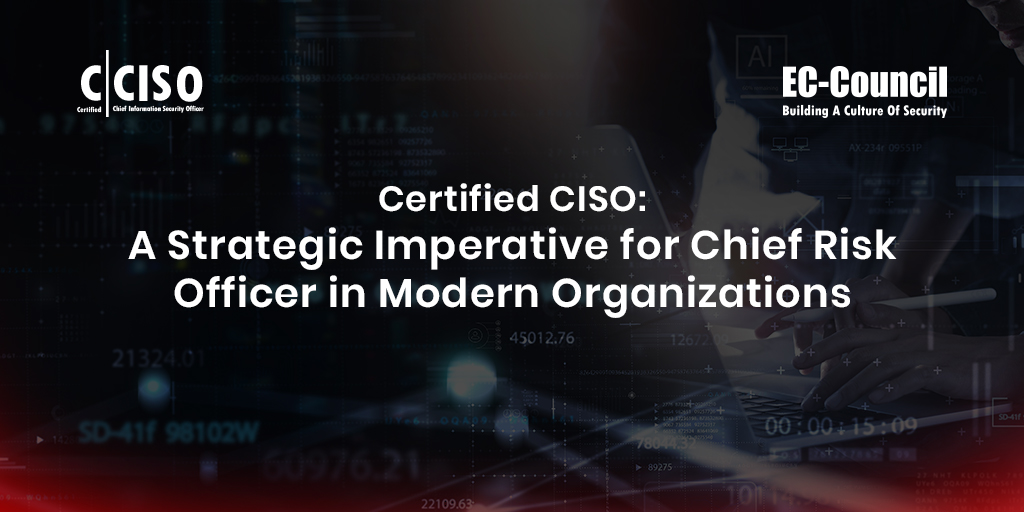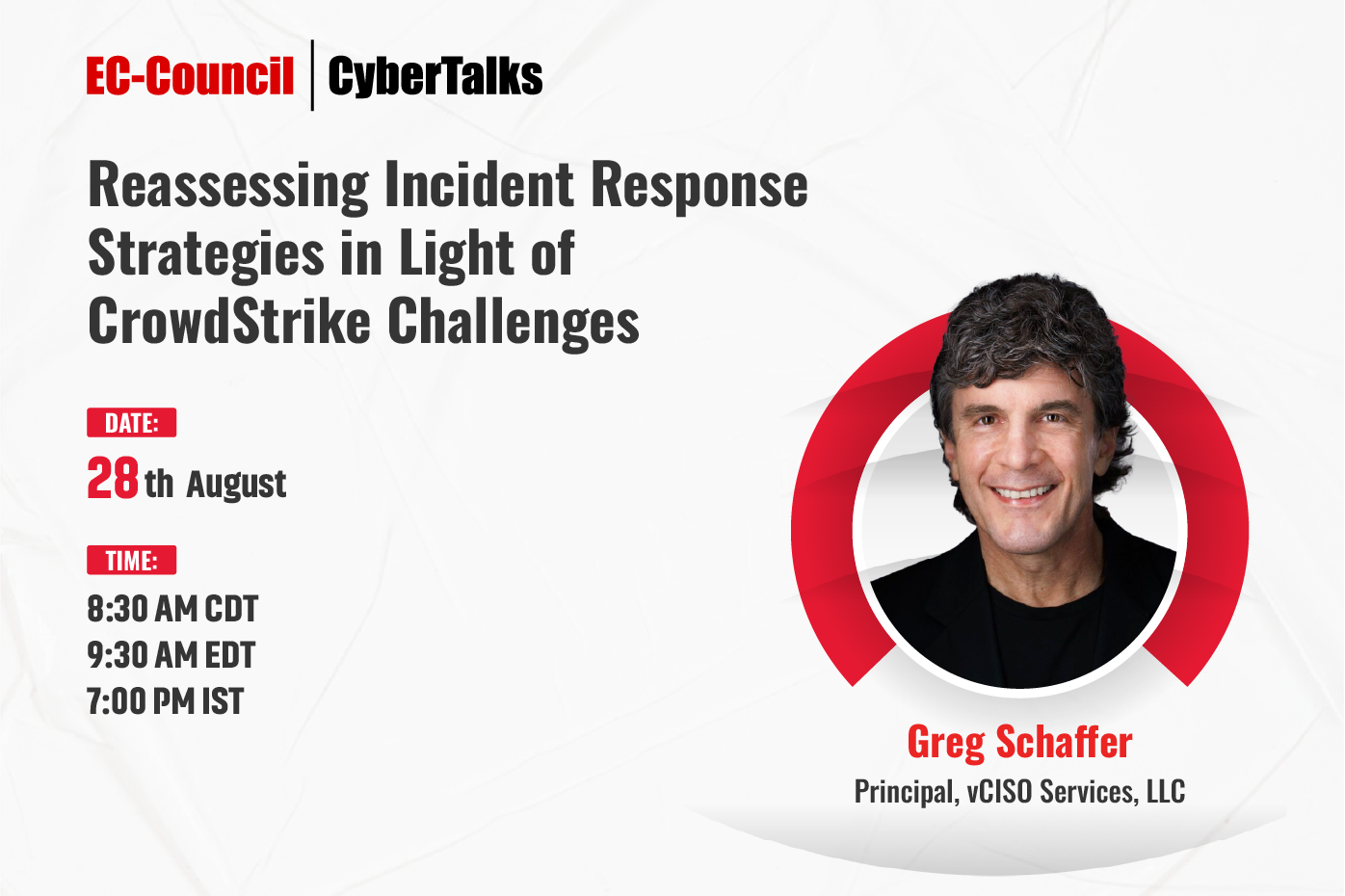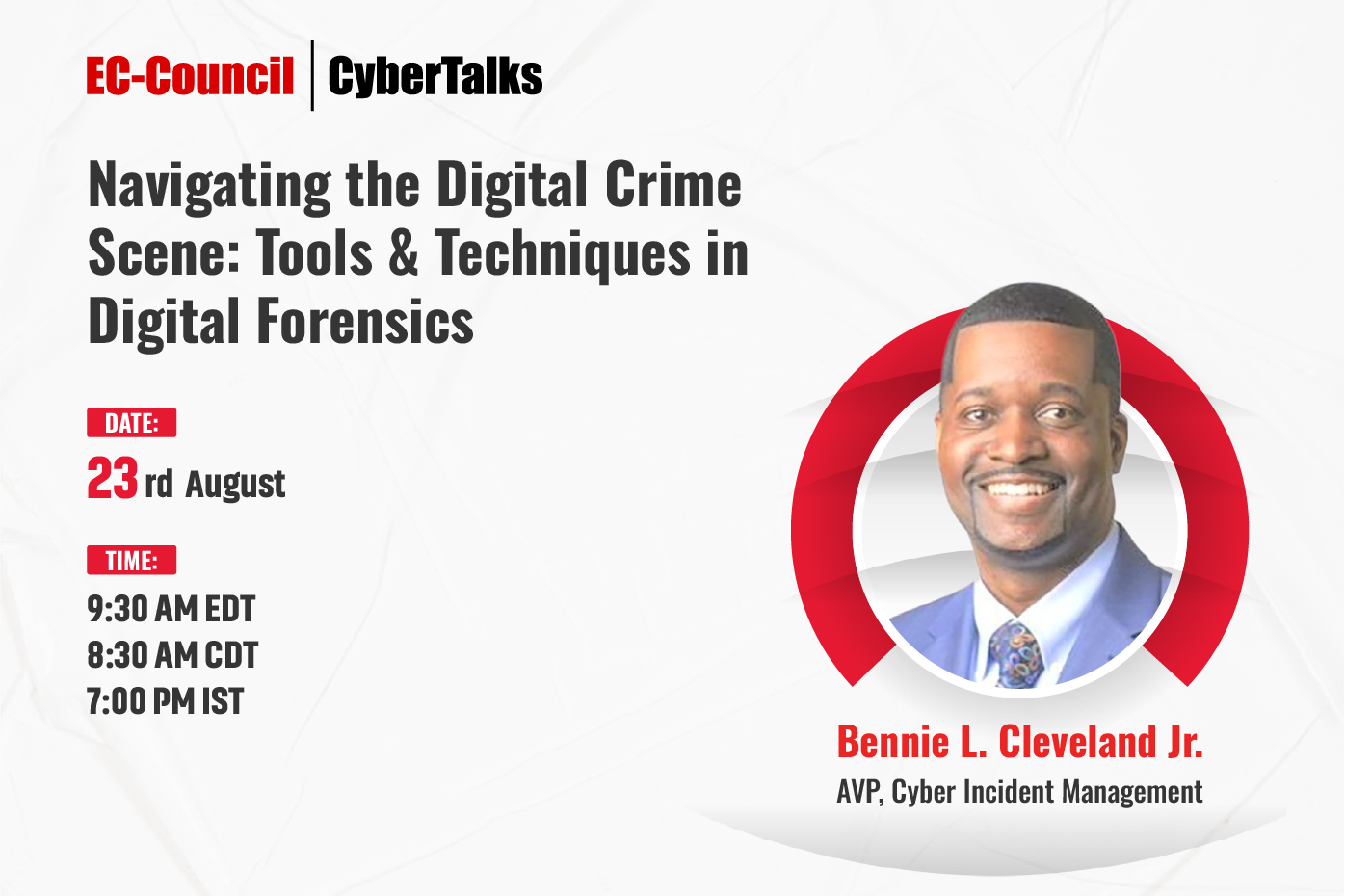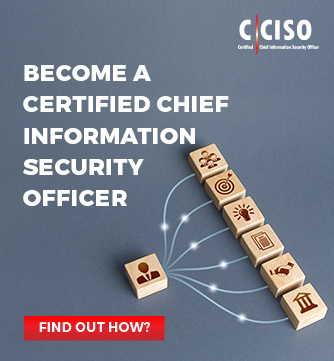The role of a Chief Risk Officer (CRO) is crucial for successfully implementing cybersecurity programs to reduce security risks in organizations. CROs conduct thorough risk assessments across all organizational facets, merging cyber risks into the overarching risk management strategy and aligning them with business objectives.
This blog aims to explore the role of a CRO in cybersecurity, the steps to becoming a Certified CISO, and the critical role of Chief Information Security Officer training programs in equipping CROs with the required skills.
Role of Chief Risk Officers in Addressing Cybersecurity Risks
To fortify organizations against cyber attacks, CROs identify, assess, and mitigate increasing cyberthreats that may impact the company’s security. Here are some key responsibilities that highlight the role of CROs.
-
Risk Identification and Assessment
A Chief Risk Officer plays a significant role in decision-making by considering the three main aspects of cyber risks—strategic, operational, and institutional. The assessed risks, determined by the purpose of the cyber attack, involve identifying the impact on the organization’s digital security. This proactive approach helps CROs make informed decisions and empowers the organization’s cyber resilience against several diverse cyber risks.
-
Development of Risk Management Strategies
Risk management involves choosing the best options to tackle an uncertain cyber risk. Since CROs work closely with the executives and other team members, they are responsible for developing comprehensive risk management strategies before implementing what’s best suited. Implementing risk management tactics requires efficient decision-making to develop effective protocols and frameworks for risk minimization.
-
Ensure Company’s Security Governance
With the help of senior cybersecurity officers like the CISO, a CRO ensures that the organization follows the relevant and required regulations. They keep track of changing compliance requirements and work on the organization’s security governance. Also, to align cybersecurity practices seamlessly, CROs train others on the team to prevent potential attacks.
-
Development of Risk Management Budget
CROs strategize the risk management budget, allocating funds wisely for cyber risk projects, campaigns, and tools. They collaborate with finance and IT teams, ensuring a clear understanding of project risk requirements and associated funds. This proactive financial planning and collaboration keep organizations safe against cyber threats.
These roles require continuous learning and research. CROs can enhance their expertise by taking part in training or certification courses often designed for CISOs. Certified CISO programs can help CROs stay up-to-date and productive in risk management duties.
Importance of Credible Certifications for CROs
Credible certifications can serve as a professional differential and demonstrate one’s competency in the field. The Chief Information Security Officers (CISOs) and Chief Risk Officers (CROs) have a symbiotic relationship in cybersecurity. Their roles are co-dependent, and they seamlessly manage the cyber risks in collaboration. The role of the CRO involves overseeing cybersecurity risk management alongside broader risk domains. Given the critical importance of cybersecurity in the current threat landscape, possessing expertise in this area is essential for CROs to effectively fulfill their responsibilities. The C|CISO certification equips individuals with comprehensive knowledge and skills in cybersecurity governance, risk management, compliance, and strategic planning, providing a strong foundation for CROs to navigate the dynamic field.
Why CROs Should Consider the C|CISO Certification Program
With the expansion of business, CROs can face challenges in implementing regulatory compliance and managing financial risks and third-party policies as they differ for various geographies. EC-Council offers a specialized training program – Certified Chief Information Security Officer (C|CISO) can help CROs in quickly adapting these challenges. This program enables CROs with the essential technical and business knowledge to navigate the intricate landscape of modern cybersecurity governance and risk management. The credential serves as a strategic solution to equip candidates with five crucial domains, each addressing critical aspects of information security: click here to check the C|CISO webpage
The course emphasizes creating and sustaining an information security governance framework within the Governance, Risk, and Compliance (GRC) domain, taking into account costs and benefits analyses of controls and ROI. This domain serves as a crucial step for understanding effective cybersecurity governance, emphasizing the establishment of effective frameworks aligned with organizational goals. Through the C|CISO program, CROs can gain insights into the standards, directives, regulations, and compliance that affect the information security program. The domain further involves understanding the organizational structure, aligning cybersecurity with business goals, and implementing risk management processes. By delving into the risk management approach, CROs can create cyber risk-related policies, manage the risk register, and assess schedules and checklists. Now that everything is connected digitally, it is essential to have strong security strategies, manage finances wisely, and maintain healthy relationships with third-party vendors. With the C|CISO training program, CROs can hone their financial management and vendor relationship skills to protect their organizations against various cyber risks. For CROs, the certification program is an effective option to enhance organizational cyber resilience by analyzing and understanding information security trends, reporting programs, and auditing compliance.
C|CISO Program Benefits for Chief Risk Officers
As cyber attacks are no longer a topic of ‘if’ but ‘when,’ CROs need to manage risks and understand information security principles. The C|CISO program can equip CROs with the required insights to navigate the complexities of the field. Here are some additional benefits associated to the C|CISO program for CROs.
- Comprehensive Curriculum: The C|CISO program offers a comprehensive curriculum that covers effective topics in cybersecurity governance and risk management.
- Industry Recognition: It is an ANAB-accredited certification program. Pursuing this will provide CROs with industry recognition, reinforcing their expertise in information security.
- Professional Development: The C|CISO program promotes continuous professional development. It is essential for staying effective in a field where threats and technologies continue to evolve.
How Can One Take the C|CISO Exam
To be eligible to take the C|CISO exam, candidates must fill out the C|CISO Exam Eligibility Application Form and email the same to [email protected]. For those opting to attempt the exam without participating in EC-Council Authorized Training, a minimum of five years of experience in each of the five C|CISO domains is mandatory. However, the industry experience can be overlapping. Candidates enrolled in EC-Council Authorized Training need only five years of experience in any of the three domains to qualify for the exam. To enroll in the C|CISO program, visit EC-Council C|CISO certification page.
Conclusion
EC-Council’s C|CISO program is essential for CROs. It offers a strategic solution to enhance cybersecurity leadership and risk management skills. The program enables CROs to align cybersecurity efforts with business goals. Recognized in the industry worldwide, the C|CISO certification is imperative for CROs to understand the ramifications of cyber attacks.
Recognizing the evolving nature of a CISO’s role, EC-Council has another program for CROs to gain an industry-recognized certificate that verifies their abilities and preparedness to take on a CISO’s responsibilities – the Associate C|CISO Grandfathering Program. It caters to cybersecurity professionals with over five years of cumulative experience in essential C|CISO domains or those who hold reputable certifications such as CISSP, CISM, or CISA. Driving as the first step to achieving the Certified CISO certification, the Associate C|CISO Grandfathering program not only validates a candidate’s skills but also supports their advancement in their career.











